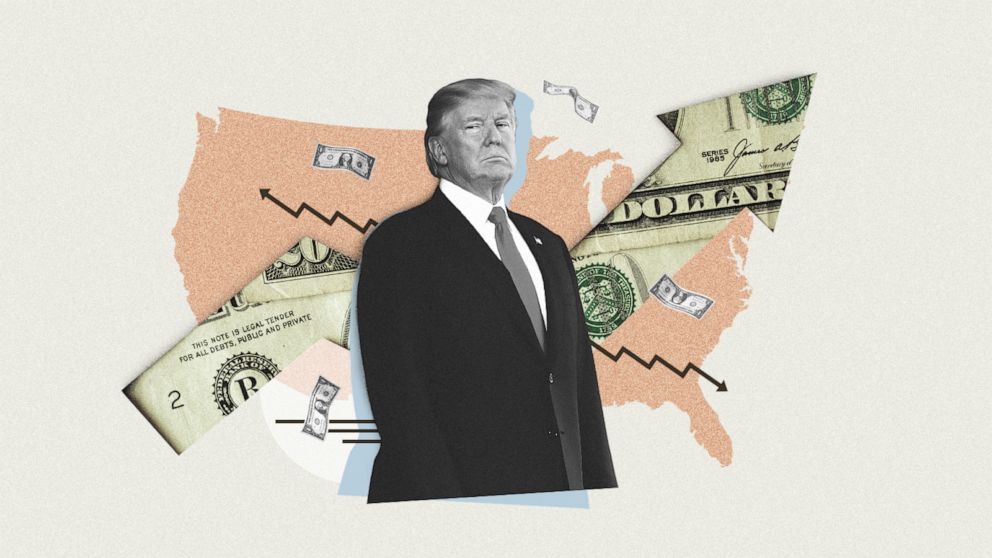FTC Probe Into OpenAI: Implications For AI Regulation And The Future Of ChatGPT

Table of Contents
The FTC's Concerns and Areas of Investigation
The FTC's investigation into OpenAI is multifaceted, focusing on several key areas of concern related to data privacy violations, deceptive practices, and potential harms stemming from algorithmic bias. The agency is examining OpenAI's practices through the lens of consumer protection and fair competition laws.
-
Data Privacy Violations: A central concern revolves around the vast amounts of user data collected and utilized by ChatGPT. The FTC is scrutinizing whether OpenAI's data collection practices comply with existing regulations like the California Consumer Privacy Act (CCPA) and the General Data Protection Regulation (GDPR). Questions surround the transparency of data usage, the security measures in place to protect user information, and the potential for misuse of this sensitive data.
-
Deceptive Practices: Allegations of deceptive practices focus on whether OpenAI accurately represents ChatGPT's capabilities and limitations to users. Concerns exist around the potential for users to overestimate the accuracy and reliability of the AI-generated content, leading to misinformation or reliance on inaccurate information. The FTC's investigation is examining whether OpenAI has adequately disclosed the limitations of its technology.
-
Algorithmic Bias and Discriminatory Outcomes: Generative AI models like ChatGPT are trained on massive datasets, which can reflect existing societal biases. The FTC is investigating whether ChatGPT exhibits biases that lead to discriminatory outcomes, potentially impacting certain demographic groups unfairly. This includes assessing the fairness and equity of the AI model's outputs across different user groups.
-
Unfair Competition: The rapid advancements in AI technology have created a dynamic and competitive market. The FTC is also examining whether OpenAI's practices have created an unfair competitive advantage, potentially harming other companies in the AI sector.
Potential Implications for AI Regulation
The FTC's investigation into OpenAI has far-reaching implications for the future of AI regulation. Its findings could significantly shape the regulatory landscape, influencing legislation at national and international levels.
-
Increased Scrutiny of Data Privacy and Security: The probe is likely to result in increased scrutiny of data privacy and security practices throughout the AI development lifecycle. Future regulations may mandate stricter data protection measures, enhance transparency requirements, and impose harsher penalties for data breaches.
-
Transparency and Accountability in AI Development: Expect a greater push for transparency and accountability in the AI development process. This could involve requirements for auditing AI systems, disclosing algorithmic methodologies, and providing clear explanations of how AI systems make decisions.
-
Ethical Frameworks for Responsible AI: The FTC's actions could accelerate the development and adoption of stricter ethical guidelines and frameworks for responsible AI development and deployment. This will likely involve collaboration between regulators, AI developers, and ethicists to establish best practices and standards.
-
Mitigating Algorithmic Bias: The investigation highlights the urgent need to address algorithmic bias in AI systems. Future regulations may mandate the development and implementation of methods for detecting, mitigating, and preventing bias in AI algorithms.
The Impact on ChatGPT and Similar Generative AI Models
The FTC's findings will undoubtedly have a direct impact on ChatGPT and other similar generative AI models.
-
Data Handling and User Interface Changes: OpenAI may need to modify its data handling practices and the user interface of ChatGPT to enhance transparency and user control over their data.
-
User Education and Awareness: Increased emphasis on educating users about the limitations of generative AI is expected. Clearer warnings and disclaimers might be incorporated to help users understand the potential risks and inaccuracies associated with AI-generated content.
-
Bias Mitigation in ChatGPT: OpenAI is likely to invest heavily in developing and implementing improved methods for detecting and mitigating algorithmic bias within ChatGPT. This might involve refining training datasets, incorporating bias detection tools, and implementing fairness-enhancing techniques.
-
Commercial Viability and Future Development: The FTC's actions could influence the commercial viability and future development of ChatGPT and similar AI models. Increased regulatory burdens and compliance costs could affect the pace of innovation and the accessibility of these technologies.
The Broader Impact on the Future of AI
The FTC's investigation into OpenAI extends far beyond the immediate impact on the company itself. It has the potential to reshape the future of AI development and deployment.
-
Accelerated AI Safety Guidelines: The probe could accelerate the development of robust AI safety guidelines and standards, fostering a more responsible and ethical approach to AI innovation.
-
Pace of AI Innovation: While potentially slowing down the development of certain high-risk AI applications, the investigation could ultimately lead to more sustainable and ethical AI innovation in the long run.
-
Collaboration and Public Discourse: The FTC's actions could foster greater collaboration between AI developers, regulators, ethicists, and the public, leading to increased transparency and accountability in the field.
Conclusion
The FTC's investigation into OpenAI and ChatGPT signifies a crucial step in addressing the ethical and regulatory challenges presented by rapidly advancing AI technologies. The outcome of this probe will significantly influence the future landscape of AI regulation, impacting both the development of AI systems and the way they are used. This investigation highlights the need for a proactive and responsible approach to AI development, prioritizing ethical considerations and user safety.
Call to Action: Stay informed about the FTC's investigation and the evolving landscape of AI regulation. Understanding the implications of the FTC probe into OpenAI and its impact on the future of ChatGPT and similar generative AI models is crucial for navigating the complexities of this transformative technology. Engage in discussions about responsible AI development and advocate for policies that promote ethical and beneficial uses of AI.

Featured Posts
-
 Hinch Demands Evidence After Disputed Plate Call Costs Tigers
Apr 23, 2025
Hinch Demands Evidence After Disputed Plate Call Costs Tigers
Apr 23, 2025 -
 Trumps Economic Legacy What The Numbers Reveal
Apr 23, 2025
Trumps Economic Legacy What The Numbers Reveal
Apr 23, 2025 -
 Le 18h Eco Du Lundi 14 Avril Toute L Actualite Economique
Apr 23, 2025
Le 18h Eco Du Lundi 14 Avril Toute L Actualite Economique
Apr 23, 2025 -
 Full List Of Us Holidays In 2025 Federal And Non Federal Dates
Apr 23, 2025
Full List Of Us Holidays In 2025 Federal And Non Federal Dates
Apr 23, 2025 -
 Where Will Brands Go The Search For New Retail Space Following Hudsons Bay Closures
Apr 23, 2025
Where Will Brands Go The Search For New Retail Space Following Hudsons Bay Closures
Apr 23, 2025
